State government challenges Labor to reveal an alternative budget
The state government says it has set out its plan for the future of the state – and has called on Labor to do the same. LATEST >>
Tasmania
Don't miss out on the headlines from Tasmania. Followed categories will be added to My News.
PASSING the budget bills and Labor and Green responses will be the top priorities for the coming parliamentary week, Leader of the House Michael Ferguson says.
Mr Ferguson said the government had set out its plan for the future of the state – and called on Labor to do the same.
“We have 18 hours allocated for debate on the budget bills,” he said.
“This is a critical stage for the Liberal government to deliver the budget so that we can deliver our plan.
“Our plan, of course, was only recently endorsed by the voters at the recent election, and faithful to our word, the commitments that we made in the election are in the budget.
“It’s funded, it’s affordable, and we are going to deliver.”
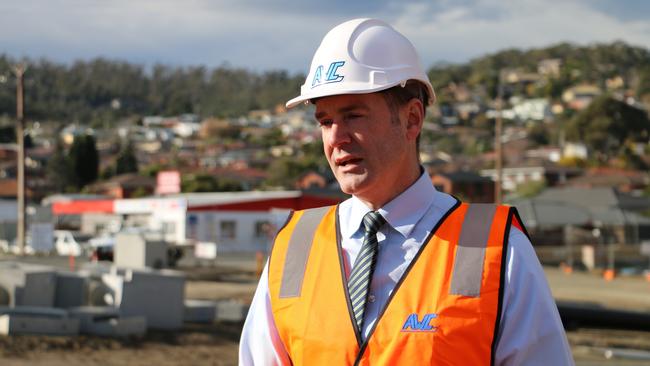
Mr Ferguson said it was incumbent on Labor to set out a fully costed alternative budget to voters.
“It’s a critical week for the Labor Party, because on Tuesday at noon, it is Rebecca White’s opportunity to outline an alternative budget on behalf of the opposition,” he said.
“Yes, they have skipped that opportunity for the last seven budgets.
“We know that the Greens have stated that they will be providing their alternative budget, what their priorities are, and importantly, how they would fund those.
“And so the question is outstanding today as to whether Labor will break their losing streak for seven years, and on our eighth budget, provide an alternative.”
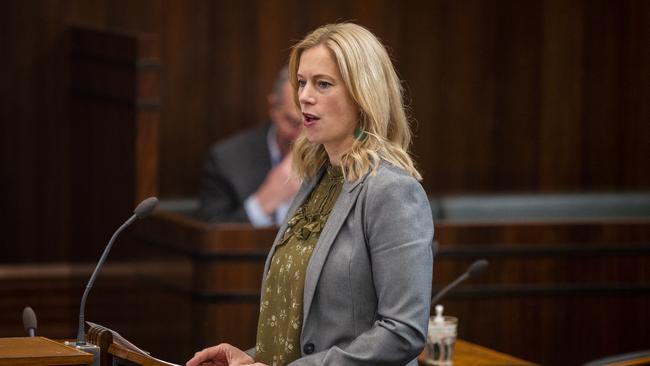
Labor leader Rebecca White accused Mr Ferguson of trying to distract people from the government’s own budget.
“We delivered an alternative budget just this year when we went to the election, we offered up different policies, they were fully costed for the electorate to understand,” she said.
“But my point would be to the Tasmanian community: don’t get fooled by Peter Gutwein and Michael Ferguson trying to distract from their budget by talking about Labor’s alternative budget.
“The reality is there is a state budget handed down on Thursday, that is taking Tasmania into more than $3 billion of debt and yet at the same time Tasmanians still can’t access the sorts of services that they should, whether it’s health or housing or education.
“There is only one budget that we should be scrutinising here, and that’s the Liberal budget.”
Green leader Cassy O’Connor said her party would give housing a high priority in its alternative budget to be handed down in state parliament this week.
“We’ll be putting forward our alternative budget, which shows how you can tackle the climate, deliver real jobs that are sustainable and charter a path through the Covid health emergency,” she said.
“Our priority will be on looking after the place, looking after people and doing it in a fiscally responsible way.”
Labor accuses government of selling Tasmanians short on health
A day after the state budget was handed down, new shadow treasurer Shane Broad has pounced on the state government’s health spending, criticising the Premier for what he’s claimed is an unsustainable cash splash.
On Friday Mr Broad said the health spending was being bumped up one year and dropped the next.
“You’ve got to put health on a sustainable footing,” Mr Broad said.
“The extra funding in this year’s budget is welcome but what’s not welcome is the drop-off for next year.
“What we see the Premier doing is this same old strategy he’s been doing for years: one year of pork, three years of pain.”
Mr Broad said the funding “drop off” would leave hospitals struggling to recruit staff.
“How is it you’re going to be able to attract doctors and nurses, orderlies and cleaners and the people we need to open the beds when next year there’s going to be less money?” Mr Broad said.
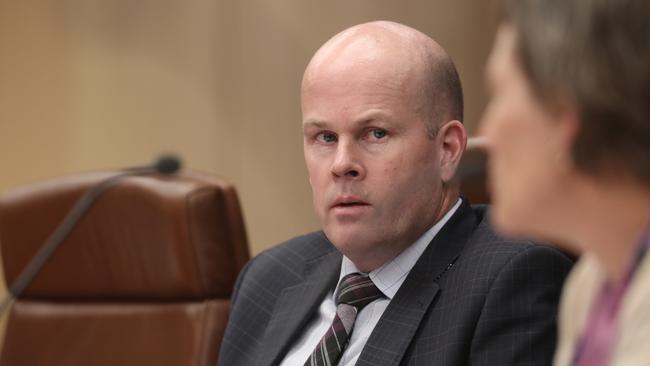
Premier Peter Gutwein said the government was already working to be able to recruit more hospital staff.
“This is a challenging space at the moment,” Mr Gutwein said.
“Unfortunately across the country there is not a workforce available you can recruit from at the moment because they are up to their neck in Covid.
“We’ve established a health recruitment task-force to work through that challenging situation.
“But what we are seeing is programs being run in Tasmania to ensure we can train more nurses,”
The greens also stuck to its core issues, claiming more was needed to mitigate climate change.
“They’ve moved the climate office into treasury, they’re treating it as the management of the safe climate, management of community responses, as an asset on the ledger,” Greens MP Rosalie Woodruff said.
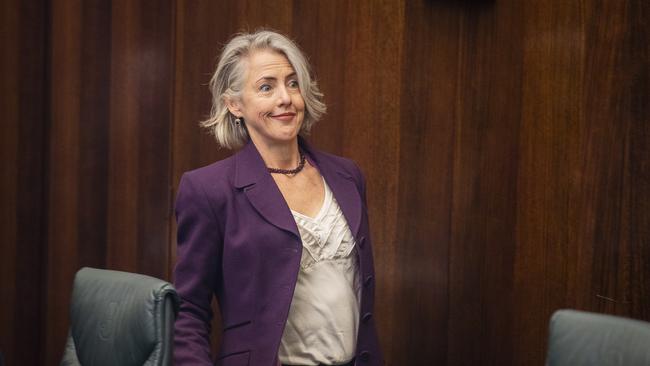
“We have to get real about the climate crisis, we have to put communities at the safety of the people across Tasmania from extreme events.”
But the Premier said Tasmania was in good stead when it came to climate change and the creation of its new body, Renewables, Climate and Future Industries Tasmania, was proof it was taking action.
“In this budget, this is the first time a Premier of any persuasion in this state has established a unit specifically targeting renewables, climate and future industries a unit specifically targeting renewables, climate and future industries,” Mr Gutwein said.
“Tasmania has an extraordinarily good story to tell on climate.”
Labor will hand down it’s alternative budget on Tuesday, the Greens will reveal it’s costings on Wednesday.
Tasmania reacts to the 2021 State Budget
The state budget has been given a mixed reception by opposition members, with concerns over debt, but praise for social and environmental initiatives.
Premier Peter Gutwein unveiled the government's vision in an hour-long speech to state Parliament this afternoon.
Afterwards, Labor’s Shane Broad said increase in health and education spending were welcome and necessary, but he was concerned about the state’s ballooning debt.
“What we see here in today’s budget is just more of the same: kicking the financial can down the road, a bit of pork barrelling but the thing that he cannot hide from now on is the debt — $3.5bn is a record debt,” he said.
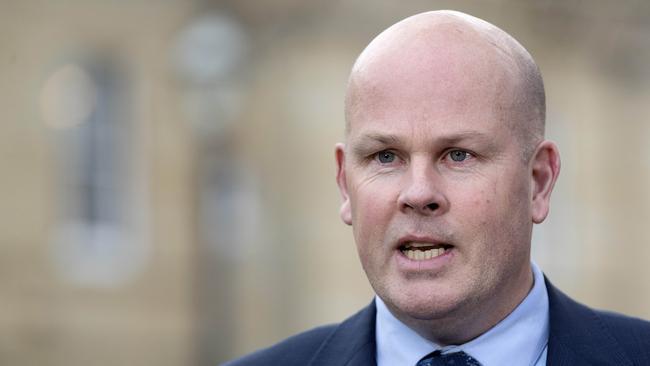
“There has been no structural reform, no changes to their budget settings, they’ve just been running down the cash balance and now the debt is building up.
“This is not just about Covid. This is about what they’ve been doing the last six or seven years, the government have been doing this every year, there’s no more money in the bank.
“Now it is all borrowed.”
Greens leader Cassy O’Connor said she liked the parts of the budget that came from Greens policies.
“Given the state of the world and the fact that we’re in the middle of a global pandemic, this isn’t a bad budget,” she said.
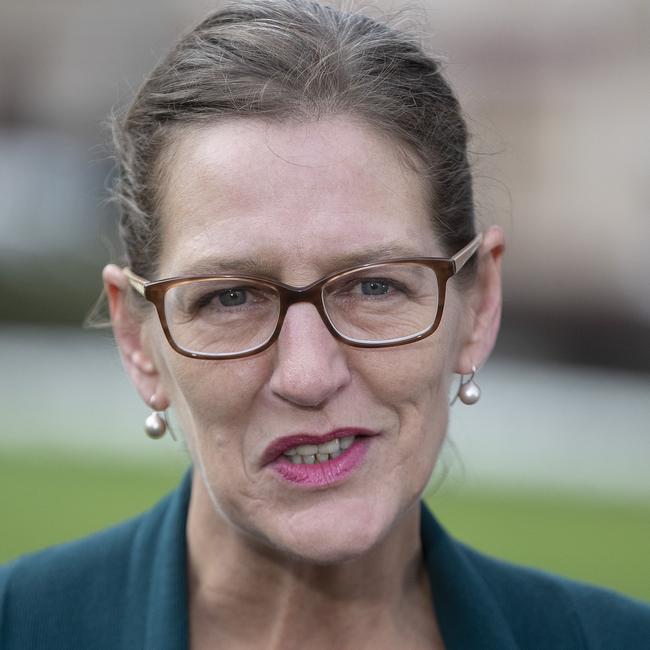
“But what we’re saying here is catch up after eight years of underinvesting in health and education, housing and community services.
“Some of the things that we love in the budget are good Greens policies: school speech pathologists, and trauma specialists, rolling out solar in schools, energy efficiency upgrades for low-income households, carbon farming grants and concessions for electric vehicles.
“It seems that our alternative budgets, aren’t so kooky after all.”
Independent member for Clark Kristie Johnston said the budget only addressed short-term issues in health.
“We’ve seen a lot of money being spent on some big ticket items and obviously the government do love to cut ribbons and have major capital projects,” she said.
“But what we really fail to see is addressing the actual disease itself and the causes that disease.
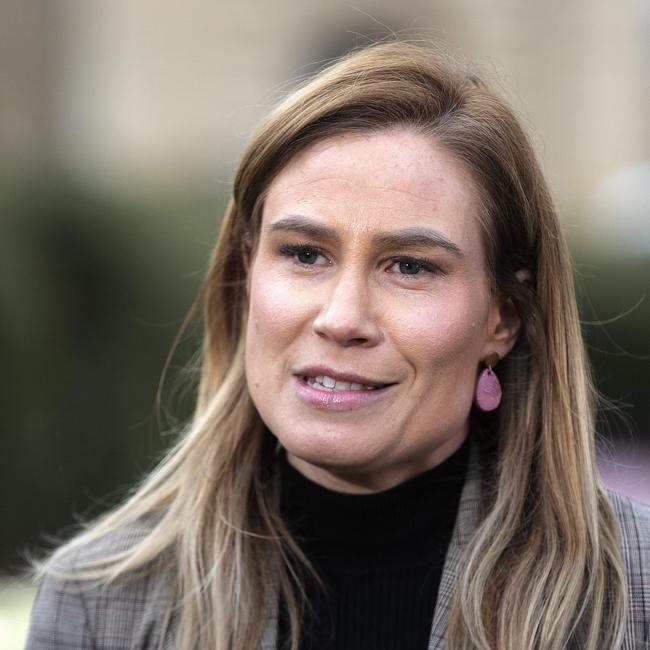
“So we see a big spending budget around health $10.7bn, but a very small amount of that money is actually being spent on community and preventive health.
“We really are not addressing the root cause of some of these problems.”
Michael Bailey Tasmanian Chamber of Commerce and Industry (TCCI)
This is the budget that gets the settings right, it’s a budget that manages spending and shows our strong ability to generate revenue.
But we are living in a Covid bubble and the problem with a bubble is that soon you run out of air, in this case you run out of money.
What we need to see is the way out of the Covid bubble, we need to see how tasmania can live with Covid, how we can have a new normal and how businesses can help us achieve that.
We look forward to seeing that in the future.
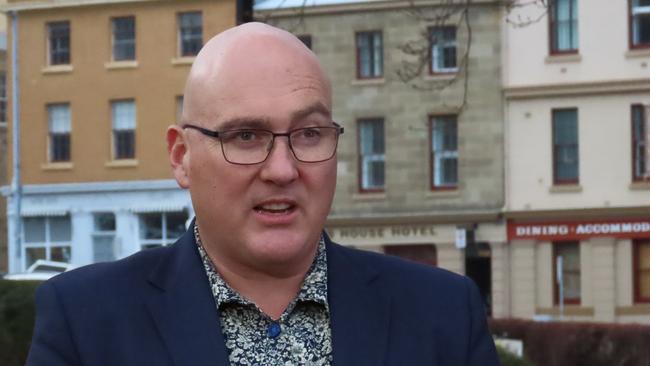
It builds on a strong platform for infrastructure.
It’s a budget that covers off on election commitments, but again we’re in a Covid bubble and we need to see a way out of that and we’d hope the budget would have a clearer and more defined way to help us to live with Covid to be a new normal.
We’re still unsure how that will play out. We’re a state that’s in really good stead but we need to see how we can move forward.
Adrienne Picone, TasCOSS CEO
There were no surprises, what we saw was really a catch-all of a lot of the announcements made over the last few months.
We were pleased to see a willingness to see a real willingness to do things in a different way, that particularly around involving people, community members in decision making but also in support to implement some of the new initiatives.
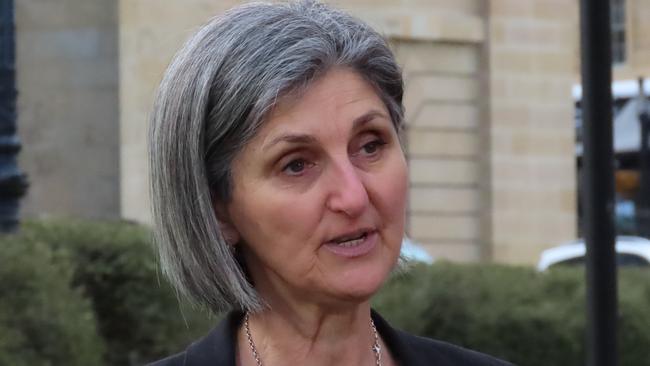
One of the things we were most pleased about was there was a willingness to address some of the more entrenched problems we have in Tasmania, in more strategic and systemic wary, particularly in strategies around youth and child services, also in terms of mental health, housing and other things.
There’s a real willingness to do thing differently.
Connie Digolis Mental Health Council Tasmania
We’re seeing an ambitious budget, it’s fantastic to see the government looking towards prevention, towards wellbeing, but these are going to come with challenges.
It’s going to be a challenge to get a workforce to fill the gaps we have and it’s going to be a challenge to see those outcomes in the time frame we’re looking at.
Again ambitious, it’s going to be long term and it’s certainly something that sits outside a current election term.
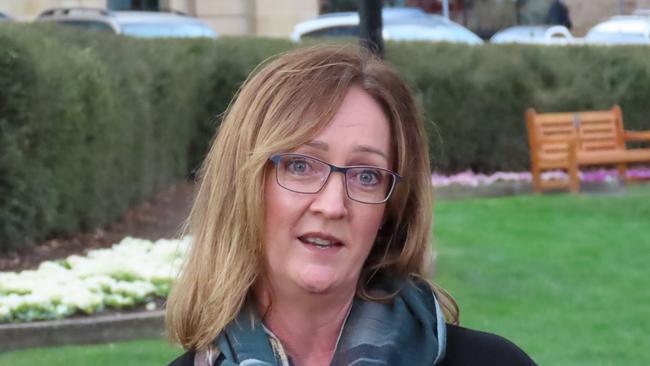
This is the result of a lot of conversations and work, and we have actually seen the government really listening to Tasmanian communities as well as to our members as well as to their own staff in state mental health services so it’s a strong response to listening to where the need is and to acknowledge there is a lot that we need to do to improve people’s access to mental health services and insuring they’re actually getting the care they need while also looking after all Tasmania and ensuring their mental health is being cared for as well.
Jessica Munday Unions Tasmania secretary
I was looking for some signals from the government that they were take action on some of the deep problems around our underemployment and the fact that Tasmania has the lowest wages and most insecure jobs in the country, and I didn’t see that today.
The participation rate is set to stay statistic over the forward estimates, there was no emotion of wage growth, no mention of public sector wages, no mention of underemployment at all.
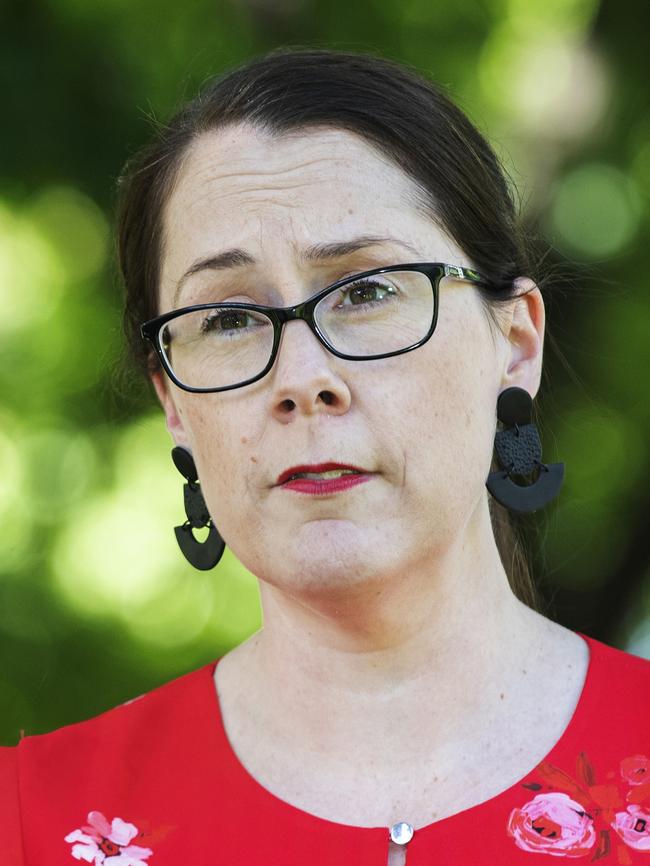
We’re predicating a lot of our forward success on the fact that border restrictions won’t be in place, that international travel will resume, and that seems to be a very optimistic picture based on where we are now.
It is disappointing to see us not delving deeply. We can talk about a headline unemployment rate but we know that only tells a very small part of the picture.
Emily Shepherd Australian Nursing and Midwifery Federation secretary
I think there’s some real positives. ANMF have been calling for greater investment in our community health services. We have seen that in today’s budget with the expansion of the mental health hospital in the home, down the northwest coast, and also the expansion of our community’s rapid response team, so that’s very pleasing, as is the commitment to permanently fund the workforce for our district hospitals to enable better flow out to our district hospitals and better utilisation of those beds.
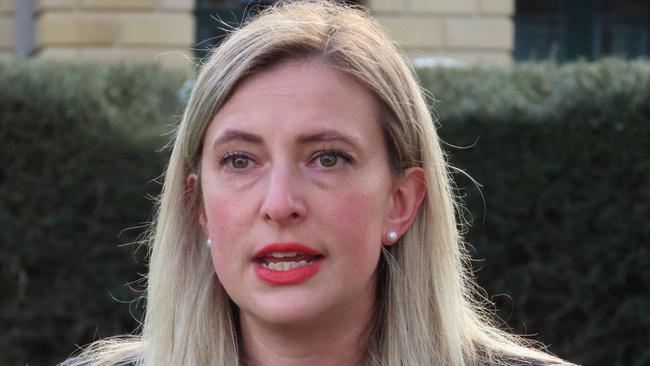
We welcome the additional infrastructure, the funding for the Launceston General Hospital masterplan and also for the Stage 2 funding for the emergency departments and ICU at the Royal Hobart Hospital and also the addition of a dedicated mental health unit separate to the Spencer Clinic at the North West Regional Hospital.
Colin Riley, Police Association of Tasmania president
The police association welcomes the budget. For us it means a full-time special operations group with two brand new facilities, one in the north, one in the south of the state.
It’ll have twelve members in the north, twelve in the south.
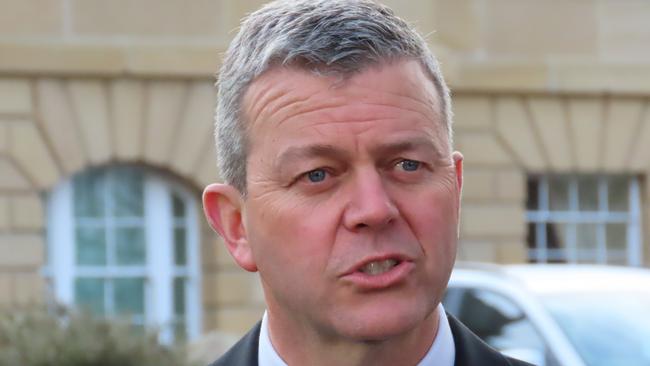
It includes 50 additional police officers, with 27 based in Launceston and includes additional funding for police houses, IT, large vessel replacement, but most important police out of courts and we warmly welcome the budget.
Thirza White, Community and Public Sector Union secretary
This budget lacks the funding that’s required to meet the premier’s own commitment for a modern and efficient public service.
What we see is some overdue investment in prisons and we see some investment in biosecurity, but a lot of this investment is short-term and will entrench insecure work.
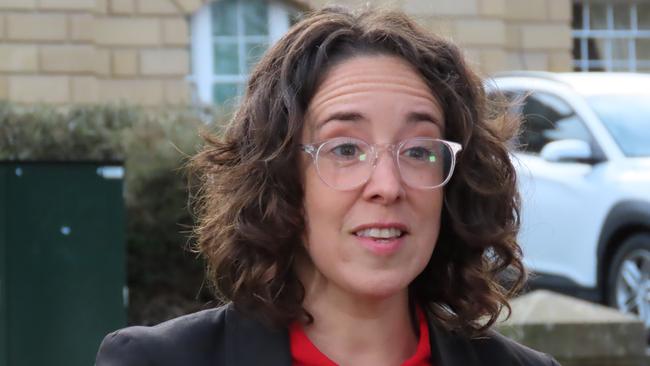
We also see there are some critical services in the community sector that have been funded over public sector services as well.
RACT
The RACT’s Chief Advocacy Officer, Garry Bailey, said the state government appeared to have delivered on all its commitments this year and he was glad to see sustainable road funding being aligned to capacity within the industry.
“We need clear, transparent ten-year plans for our major roads, free of politics and the election cycle,” Mr Bailey said.
Despite the positivity, Mr Bailey pleaded with the Premier to provide more support for maintenance work on northern highways.
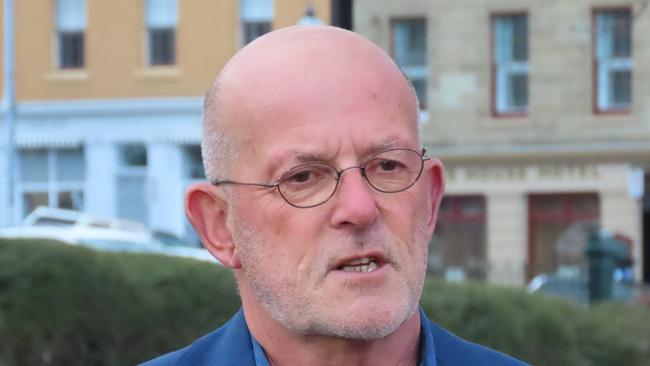
“We also need to make sure the maintenance budget keeps pace. We’ve seen key sections of some of our major highways crumble. I’d urge the Premier and the Minister for Infrastructure to pay attention to the state of the Bass Highway between Launceston and Devonport when they go on their budget roadshow tomorrow.
“While our members support new and improved roads being built, they are very concerned that the maintenance work isn’t being done to support the initial investment and we’d encourage the Government to look at that.
Master Builders
Tasmania’s peak building body has affirmed that this year’s budget shows that construction will continue to lead the economy “so long as we can remain open and working.”
Master Builders Tasmania Executive Director Matthew Pollock said he was pleased to see major election commitments met with a second round of the Building Projects Support program taking total funding to unlock stalled community or commercial construction projects to $20m.
“This $20 million will unlock over $100 million in private investment and over $300 million in related activity across the economy.” said Mr Pollock.
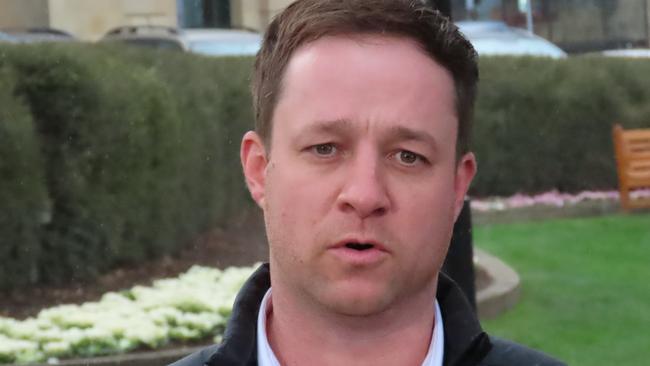
“Our ongoing recovery will rely on the private sector doing the heavy lifting. For every $1 spent on a construction project creates $3 in economic activity.
“$10 million in headworks rebates will unlock much need land supply for new housing construction, directly supporting the release of than 1,500 lots. Indirectly we’d expect it to unlock several more lots as the rebates will be factored into the financial feasibility of larger subdivisions.
“Unlocking land supply is crucial for the construction industry to build more homes and address housing affordability.
“Overall, the settings are sensible and somewhat expected given we are only a few months out from an election and the radically improved economic environment.
Youth Network of Tasmania
Youth Network of Tasmania’s CEO Tania Hunt said the 2021/22 state budget contains a record investment to improve the health and wellbeing of Tasmania’s children and young people and will further support the implementation of the Tasmanian Child and Youth Wellbeing Strategy Action Plan 2021-2025.
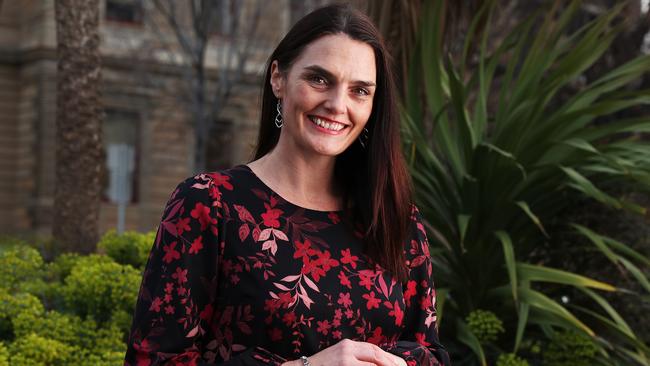
“We are particularly pleased to see targeted investment in supporting young people aged 16-25 years to navigate work, education and training in a Covid changed landscape through investing in youth navigators, youth connectors and the fit for work project.” said Ms Hunt. “We are also pleased to see a significant investment in the areas of youth mental health, housing initiatives and youth participation and engagement activity.”
“This Budget is encouraging and will support us in working together for our next generation.”




